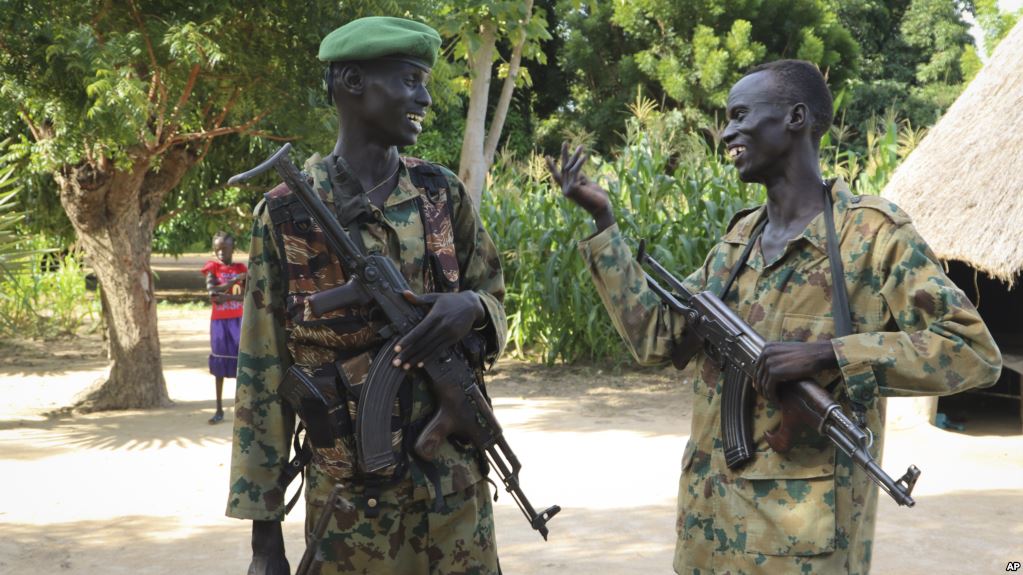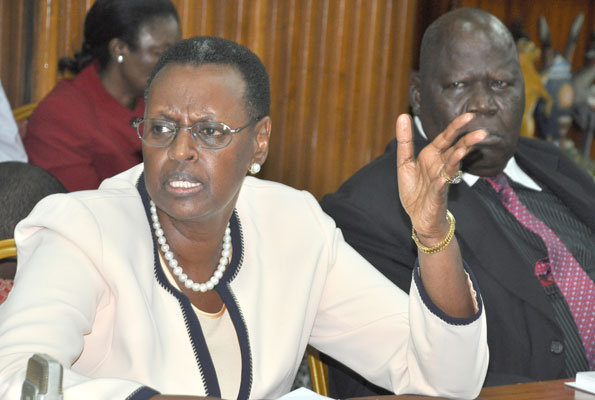South Sudan’s government claims the shattering five-year civil war is finally over, but there is considerable skepticism. It wasn’t helped by the sight of President Salva Kiir refusing to shake the hand of rival Riek Machar after they signed a power-sharing deal this month, according to video footage seen by The Associated Press.
This latest attempt at peace already shows cracks, with the armed opposition last week saying several key issues, including reconciliation, are yet to be resolved as the warring forces prepare to merge and Machar is set to return to the capital as Kiir’s deputy once more.
Machar’s side won’t sign a final agreement that doesn’t ensure “accountability and justice and free and fair elections” at the end of the three-year transition period, chairman Mabior Garang de Mabior told AP.
Even as negotiations continue in Sudan, which has taken the lead in peace talks as it eyes South Sudan’s oil resources, the United States and many South Sudanese express deep concern that the fragile peace deal will end in violence as the previous one did in July 2016, with Machar fleeing his vice president post, and the country, on foot.
Now this East African nation, whose civil war along largely ethnic lines has created Africa’s largest refugee crisis since the 1994 Rwandan genocide, nervously awaits the rebel leader’s return.
South Sudan’s government acknowledges that some issues remain but says the current deal is genuine.
“It is the end of the war and the beginning of a new era,” said Maal Maker Thiong, who works in the president’s office.
The civil war in the world’s youngest nation has killed tens of thousands of people and sent more than 2 million fleeing since the fighting erupted between supporters of Kiir and then-deputy Machar in December 2013, two years after the country won independence from Sudan. Half of the remaining population of roughly 12 million is near starvation, according to U.N. agencies.
The idea that the two men whose rivalry has caused so much destruction are now in charge of finding peace has alarmed some in the international community and on the ground.
“We are concerned that the arrangements agreed to date are not realistic or sustainable,” the U.S., Britain and Norway said in a statement this month.
“We have seen time again that power-sharing is a recipe for more conflict in South Sudan and that Salva Kiir and Riek Machar are in fact obstacles to ending the war and not vehicles for resolving the conflict,” said Payton Knopf, a former coordinator of the U.N. panel of experts on South Sudan and former U.S. diplomat.
As part of the new peace agreement, Machar will return as one of five vice presidents. Government and opposition forces will merge into one national army. A three-year transitional period will follow, culminating in elections. Machar is expected to return within eight months, but opposition chairman Mabior said that will happen only with signs the agreement is being carried out.
During a visit this month to one of the last opposition-held areas in South Sudan, the AP spoke with more than a dozen people. All said they were doubtful that peace would prevail.
The captain of the opposition’s military intelligence for Panyijiar County, James Malieth, said he was shocked when he learned that his forces soon would have to merge with government troops.
“You can’t fight with someone and then be put together with them,” he said. “Our hearts haven’t yet calmed down from war.” It will take years before they can fight side-by-side with soldiers who killed his colleagues, he added.
News of the peace deal has filtered down to wary people in rural areas.
Seated on a straw mat outside her new home, 28-year-old Nyadet Kai cradled her small son to her chest. The mother of five said she escaped her hometown of Leer in May when government soldiers attacked, raping women and abducting children.
Kai lost her husband to the war in 2013 and has been displaced seven times since then. She now seeks shelter on a remote island in the swamps, 45 minutes by boat from the opposition-held town of Nyal in Unity state.
“In 2015 they signed something but there was fighting again,” she said of the previous peace agreement. “I’ll believe there’s peace when the government removes its soldiers from my town.”
Another island resident, Mary Nyataba, playfully wrestled with her dog, which in disgust she had named after Kiir’s backside.
“I called him that because the president has killed so many people,” the 40-year-old mother of five said. Stroking the dog’s nose with her thumb, she said she might change the name if peace ever comes.





